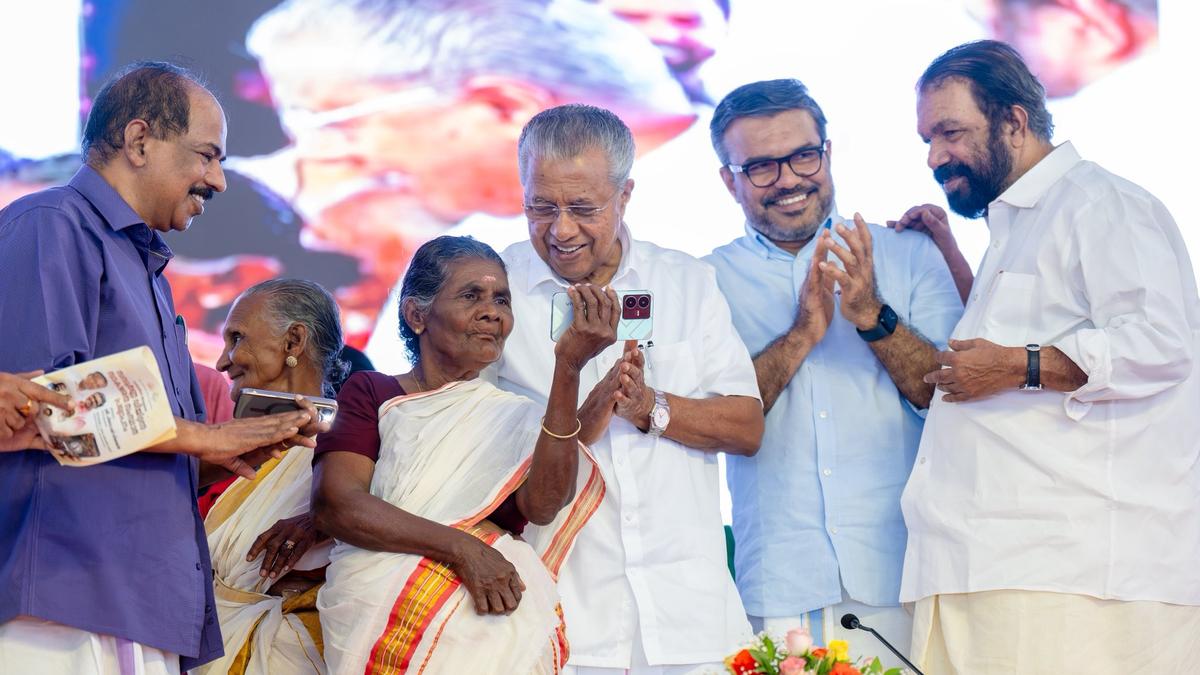Kerala: India’s First Fully Digitally Literate State

- 26 Aug 2025
In News:
Kerala has become the first fully digitally literate state in India, marking a historic milestone in bridging the digital divide. The achievement follows the successful completion of Phase I of the Digi Kerala project, a grassroots initiative aimed at equipping citizens with essential digital skills.
Origins of the Digital Literacy Movement
Kerala’s digital literacy journey began with the Akshaya Project in 2002, launched by President A.P.J. Abdul Kalam, which aimed to make at least one member of every family digitally literate.
The recent drive was inspired by the Digi Pullampara initiative (2021) in Thiruvananthapuram, where local officials trained daily wage labourers and MGNREGS workers in basic smartphone-based services to prevent loss of wages due to long queues at banks. The success of Pullampara, which became the state’s first fully digitally literate panchayat, laid the foundation for statewide expansion.
Survey and Training Model
The programme followed a mass literacy campaign model reminiscent of Kerala’s 1980s literacy drive. Surveys covered 1.51 crore individuals across 83.45 lakh households, identifying 21.88 lakh digitally illiterate persons. Of these, 21.87 lakh (99.98%) successfully completed training and evaluation.
Training included 15 basic digital tasks such as making voice/video calls, using WhatsApp, accessing e-governance platforms, and conducting digital transactions. Volunteers—drawn from NSS units, Kudumbashree groups, SC/ST promoters, and libraries—delivered training at worksites, neighbourhood groups, and homes, ensuring inclusivity. Evaluations required participants to perform at least six out of the 15 tasks, with retraining provided where necessary.
Inclusivity and Grassroots Orientation
Unlike the National Digital Literacy Mission (NDLM) and Digital Saksharta Abhiyan (DISHA), which capped training at 60 years of age, Kerala’s programme included all age groups—even centenarians. Data shows 15,221 trainees above 90 years, and over 7.77 lakh between 60–75 years benefitted. Women (13 lakh), men (8 lakh), and 1,644 transgender persons also participated, showcasing inclusivity.
The programme also targeted marginalized communities and homemakers, ensuring that digital literacy did not remain confined to urban or privileged groups.
Integration with Kerala’s Digital Ecosystem
Kerala’s digital literacy drive is not a standalone initiative but part of a larger ecosystem:
- Kerala Fibre Optic Network (KFON): Provides universal internet access, including free connections to BPL families.
- K-SMART (Kerala Solutions for Managing Administrative Reformation and Transformation): Integrates all local self-government services onto a single digital platform.
- Digi Kerala 2.0: Expands the mission beyond basic literacy to include cyber fraud awareness, misinformation detection, and advanced e-governance training.
This smartphone-centric approach reflects ground realities, where mobile phones are the most accessible digital tool for citizens.
National Context
Digital literacy in India remains limited: only 38% households are digitally literate (61% in urban, 25% in rural areas). Past initiatives like NDLM and DISHA trained over 53 lakh people, while PMGDISHA (Pradhan Mantri Gramin Digital Saksharta Abhiyan) has trained 6.39 crore individuals till March 2024. Kerala’s model stands out for its grassroots orientation, inclusivity, and integration with governance.
Significance
- Governance & Transparency: Enhances access to schemes like Ayushman Bharat, PM-Kisan, and Jan Dhan, while enabling online grievance redressal and RTI filing.
- Socio-Economic Empowerment: Equips women, elderly, and marginalized groups with livelihood-relevant skills.
- Disaster Resilience: Ensures continuity of education, services, and financial transactions during crises such as pandemics.
- Scalable Model: Provides a blueprint for other states under the Digital India mission, focusing not only on infrastructure but also on citizen capacity.
Conclusion
Kerala’s declaration as the first fully digitally literate state represents more than a symbolic achievement; it reflects a transformative model of participatory governance, inclusivity, and socio-economic empowerment. By bridging the last-mile digital divide, Kerala positions itself as a leader in India’s march towards a digitally empowered society.
